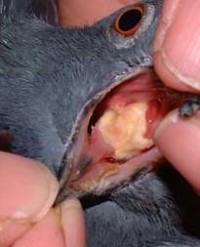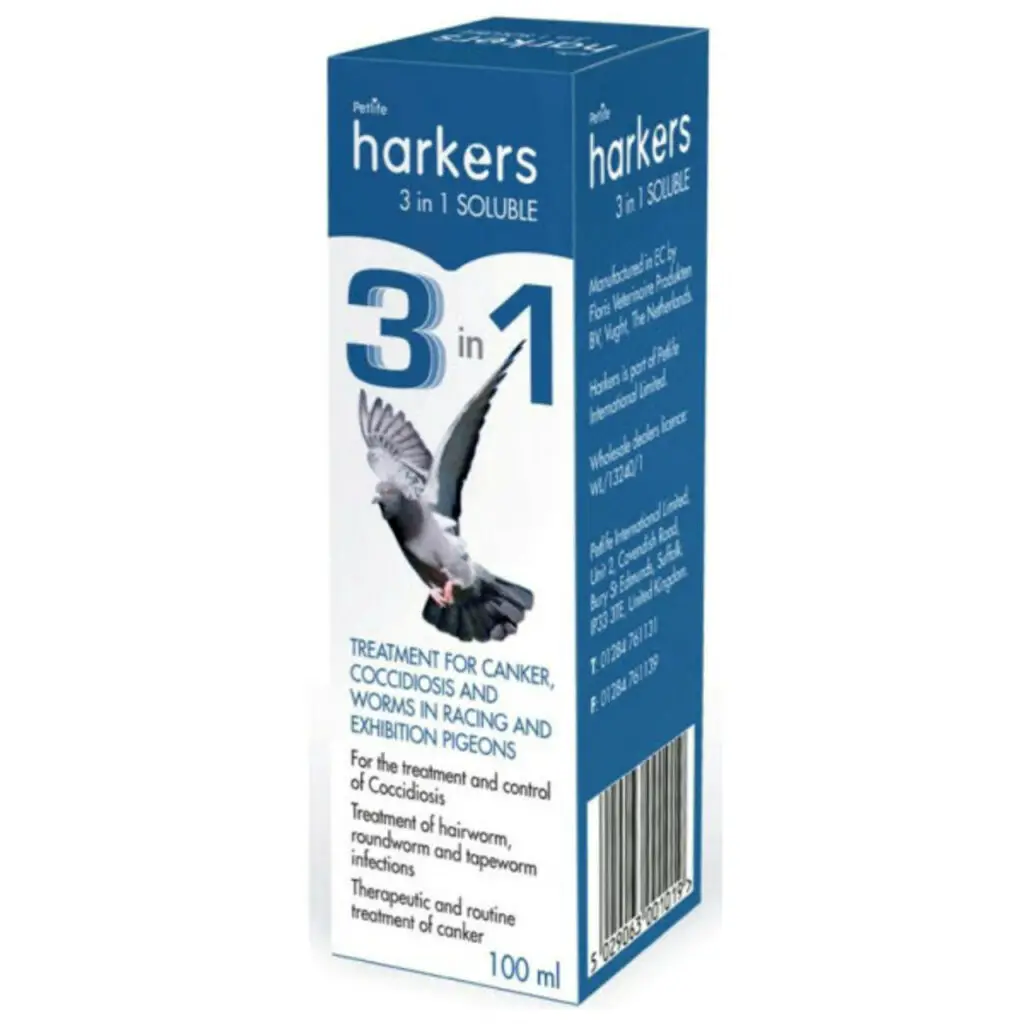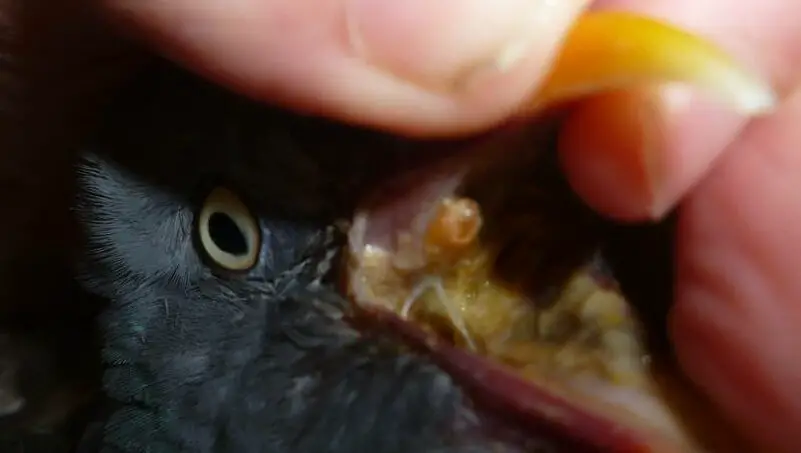Trichomoniasis or Canker, as it’s known in pigeons, is quite widespread in the pigeon world, especially in the UK. It can also affect birds of prey (known as “frounce”) that feed on other birds that are contaminated with the parasite.
Adult pigeons can often be inflicted without showing any outward signs and may infect their own young birds, which can in some cases be fatal. It’s always best to take preventative measures by treating the birds prior to pairing up and breeding in addition to having a properly stocked medicine cabinet.
Signs of Canker in Pigeons
Often found in the oral-nasal cavity or anterior end of the digestive and respiratory tracts.
In young birds, the early lesions look like white to yellowish spots in the mouth cavity, especially around the soft palate. These lesions consist of inflammation and ulceration of the mucosal surface and may possibly develop into large, firm necrotic masses.
Occasionally, the infection might spread by penetrating the underlying tissues, affecting the liver and other organs.
Additionally, the bird may show signs similar to that of a common illness, for example, exhaustion/lethargy, fluffed-up plumage, drooling saliva, regurgitating foods, and issues in swallowing or laboured breathing.

How it spreads
Canker may be transmitted via saliva, drinking water and in the droppings. The disease might progress in excess of a number of days or even weeks, consequently affected birds are frequently very thin or emaciated.
Treatment
One of the most recommended treatments for canker in pigeons is the Harkers 3 in 1, this will not only treat but will help to prevent canker from spreading further.

This comes in either a tablet or soluble form. This soluble is much easier to administer if you’re not particurarly confident.

